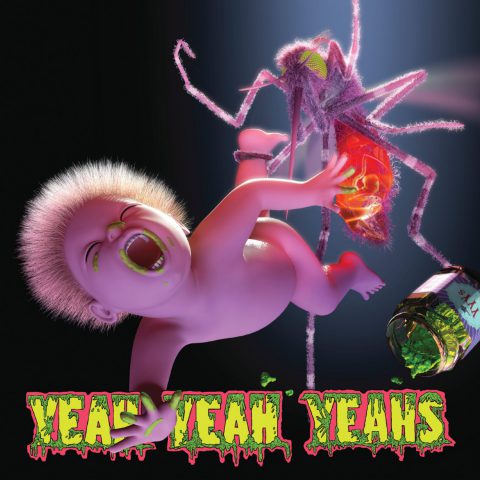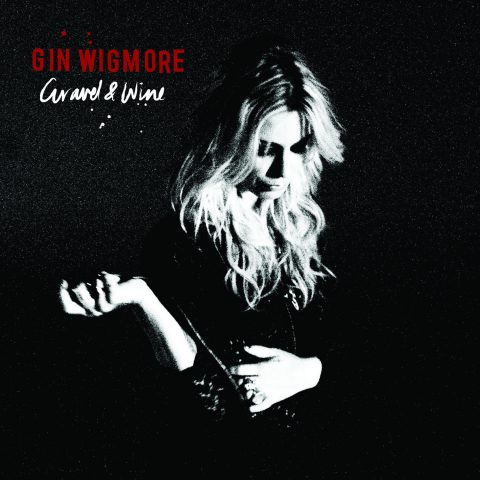Yeah Yeah Yeahs
Mosquito
Karen O and co., the New York alt-rock trio widely known as the Yeah Yeah Yeahs, went neon for It’s Blitz!, a staggering best-of-2009 creation that pulsed with dance-floor fever and, as promised, got heads rolling. Four years later and they’re back with a different animal … er, insect. Mosquito, the band’s fourth outing, is a sloppy mess of awesomeness that starts where they left off, as “Sacrilege” bursts at the seams with a thundering melody that avalanches into a gospel choir send-off. And then things get weird. “Area 52” might be code for some strange cult initiation, or it might just be a grungy song about an alien abduction. The title track could be about those pesky bloodsuckers, or another nuisance: men. And then, of course, you have rapper Keith Matthew Thornton’s alter ego, Dr. Octagon, on “Buried Alive,” the kind of tune you imagine running over the closing credits of The Human Centipede. Whatever the intent of the mesmeric Mosquito, it accomplishes something, somehow, in its own big, bad and bold way. It’s an itch you won’t mind scratching.
Grade: B+
Gin Wigmore
Gravel & Wine
“I’m gonna getcha,” New Zealand songstress Gin Wigmore vamps like a monster lurking in the shadows on “Kill of the Night.” And you believe her. How could you not? The first four songs on her sophomore album have more bite than anything on True Blood. There’s a dangerous edge to Wigmore, if not for her infatuation with hell, poison and the devil (all are referenced in the titles alone), then that salty voice, which sounds like a savage beast unearthed from the seventh circle. It’s big and menacing during the disc’s front half, and doused in more whiskey than Amy Winehouse – whom she resembles vocally – ever drank. “Black Sheep” has the hook of a girl-group anthem and the fury of Bonnie and Clyde, and during it, Wigmore emerges with zing and sting. On “Devil in Me,” you can just see the snake slithering its way through the desert. Eventually, the spunk subsides for “If Only,” but darkness looms in the self-consciousness of the heavy-hearted track, with references to blood and “the ghosts in my head.” In the same way, Gin Wigmore, even with her liquor-soaked voice, will live in yours.
Grade: B+
Patty Griffin
American Kid
Ever since her rootsy 1996 debut Living with Ghosts, Patty Griffin has found inspiration in the deep, dark corners of life. Written in the midst of her father’s death, American Kid serves to honor him in the best way Griffin knows how: with song. Griffin go-tos, like mortality and loneliness, reoccur in the elaborately painted snapshots that play out like chapters of a book – each one taking you closer to the end of a story. That bitter end is “Gonna Miss You When You’re Gone,” a glimmer of hope in her grief. The wistful opener, “Go Wherever You Wanna Go,” imagines eternal rest as the release of life’s burdens. But this isn’t a dedication that merely mourns. In fact, it doesn’t do much of that at all. It remembers. Sung in first person, the man in “Irish Boy” and “Faithful Son” is an overlooked wallflower – a war vet who went his whole life doing unto others and still slipped through the cracks. “Little children came and grew, moved away and never knew who I was or who I am; no, they never knew this lonely man,” Griffin laments on the latter, as a guitar waxes with escalating percussion and an ethereal voiced Robert Plant carrying out the track like a spirit sailing off to the sky. Capturing scenes from everyday life, American Kid riffs on an abandoned mutt (heartbreaker “Wild Old Dog”), a frisky man courting his new wife (“Get Ready Marie,” her most playful song ever) and transcendence (spiritual “Ohio”). It sweeps the earthiness of Living with Ghosts into a sublime Americana sound with the heart and soul – and certainly the songs – of Patty at her prime. In a career repertoire of all highs, this one goes all the way to the heavens.
Grade: A
James Blake
Overgrown
James Blake doesn’t care if you rip his sophomore album for free. He said so in a recent interview, noting that the label is not in agreement with his very generous marketing strategy (oh, I wonder why). Blake is either really modest with his music, or he’s selling the prowess on display during Overgrown so short – it doesn’t get shorter than free – he’s unconcerned with profiting from it. But he certainly deserves to. Having claimed a fair amount of indie clout with 2011’s self-titled debut, the English virtuoso ambles into the same electro “post-dubstep” lushness that scored him a Mercury Music Prize nod that year. This time, Blake approaches his work with even more refined precision and the delicately winsome soundscapes that summon the abstractness, wonder and dream states of Bon Iver and Sigur Rós – all the while, his melty-voiced endearment pulls you in like the tide. The title track’s cascading piano is swallowed by a whorl of sound euphoria; “Life Round Here” fuzzes and sizzles into a hooky soul hypnosis (it also features an unforgettable thread: “Everything feels like a touchdown on a rainy day”); “DLM” strips back the atmospherics for just a simple melody and still mesmerizes. Even the rap Wu-Tang Clan leader RZA lays down on “Take a Fall for Me” jibes with Blake’s subtly melodic and stunningly cinematic work. Overgrown is the kind of outré work that commands quietly with its minimalism and soothing sensitivity, as it frames a world of majestic sonic grace. That sounds like something that deserves some monetary recognition, don’t you think?
Grade: A-
Also Out
Alice Russell
To Dust
Adele better hurry with that junior album if she doesn’t want Alice Russell to swipe the soul-diva spotlight from her. The British songstress’ To Dust – her fifth solo release in just over a decade – is cut from the same cloth of vintage soul that launched Adele into global stardom. Now it’s Russell’s turn. Besides a voice big and bold enough to wage war, the U.K. singer is also completely invested in the torrent of emotions rippling through this old-school R&B revival. About those emotions: they’re everywhere, from the sad demise of a relationship (“I Loved You”) to defiance (“A to Z”) and desperation (“4 a While”). It’s time she get her big break, America.
Emeli Sandé
iTunes Session
Some of the best bits off Emeli Sandé’s Our Version of Events were the ones stripped of nearly everything but her voice. The British belter needs no flashy backup. She’s a bona fide singer. And every bit of that soulful boom is revealed during this eight-song set; both “Next to Me” and “Heaven” scale back the pop punch but remain just as powerful. New cover “I Wish I Knew (How It Would Feel to be Free)” epitomizes greatness. What a showcase.
Paramore
Paramore
If Paramore circa mid-’00s made you feel like an angry 12-year-old girl, the trio’s mature fourth LP will put you past puberty. “Some of us have to grow up sometimes,” sings Hayley Williams. “So, if I have to, I’m gonna leave you behind.” Subtle nod to ex-bandmates? Probably. Completely intoxicating ear candy? Absolutely. The new Paramore takes emo on a 17-song odyssey with the restless rocker “Fast in my Car” and funky ’80s whomp “Ain’t It Fun.” Turns out, it is.
Amy Grant
How Mercy Looks From Here
What’s Amy Grant been up to in the 10 years since her last studio album? Living. There’s no “Baby Baby” on the Christian-pop darling’s long-gestated work, because these songs are formed from wisdom and reality: seizing the day (“Our Time Is Now” with Carole King), love’s boundlessness (“Deep as It is Wide” with Sheryl Crow and Eric Pasley; a threesome pulled off masterfully) and a vow of acceptance (“Golden,” a welcome throwback to Grant’s ’ 80s catalog). Life at 52 also means confronting grief and sadness; the inspiring title track carries the burden of both, as does the somber “Shovel in Hand.” Those songs, like all of Mercy, aren’t pretty pop – but they’re real.



What Do You Think?